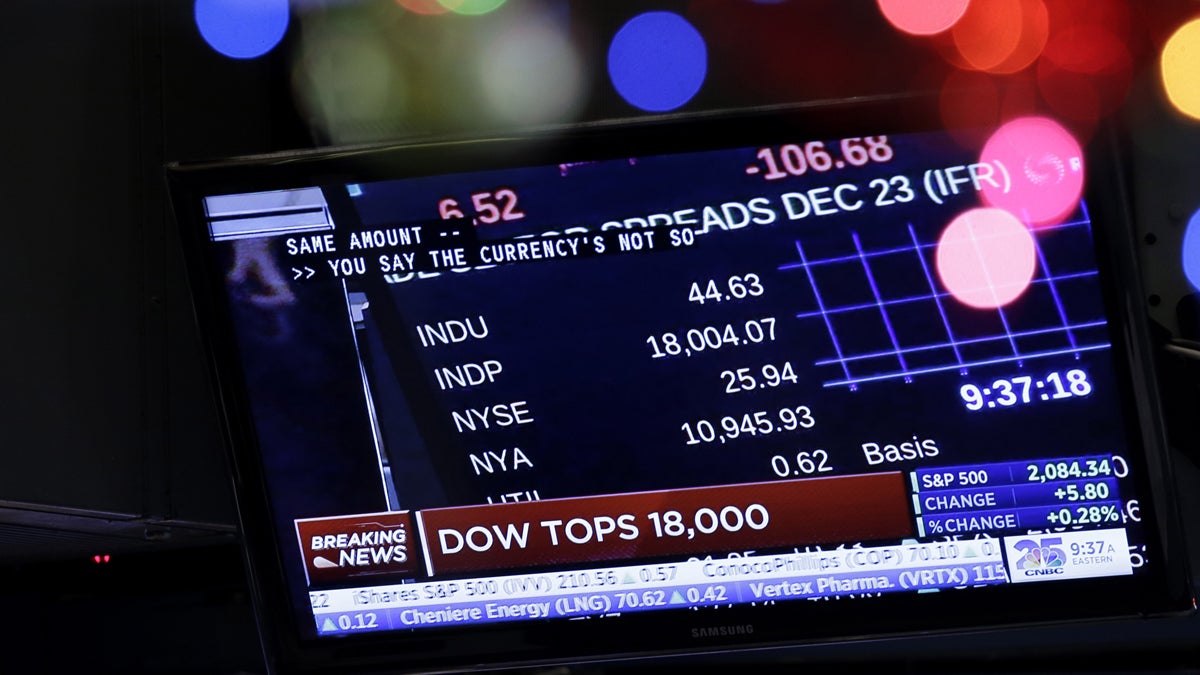10, 50, 100: Why do we find comfort in round numbers?
Listen
In December
Numbers have mattered to humans since the earliest civilizations…but some have mattered more than others.
There are certain numbers that we know represent fact. There are 60 minutes in an hour, 360 degrees in a circle, and 12 eggs in a carton. But did you ever wonder why 60 minutes and not 100? Or why 12 eggs and not 10? It turns out there’s actually a reason why we use the numbers we do today.
“Quantifying is one of the fundamental human activities. We’ve done it in every civilization that we’ve ever had,” Jordan Ellenberg, a number theorist at the University of Wisconsin Madison, said. “It’s not even clear we would be human without doing it. It’s just one of the fundamental ways we apprehend our world.”
As humans, it’s harder to use just any number to make sense of things. We prefer to use round numbers.
“We like things that are simple, that are easy to process, that are easy to make sense of, that are easy to understand,” Adam Alter, a professor of marketing and psychology at New York University, said.
Take the stock market for example. In December, the Dow Jones Industrial Average hit a new high at 18,000, and it took the news cycle by storm.
“In many ways it’s completely arbitrary, right? I mean we could measure the Dow on a different scale and that number that’s 18,000 might instead be 16,463 and it would mean the exact same thing,” Ellenberg said.
Round numbers influence our lives in other ways too. SAT takers, for example, are more likely to retake the test if they fall just short of a round number. Major League players are four times as likely to end the season with a .300 batting average than a .299.
“They’re great guideposts if you’re looking at goals, if you’re aiming for something,” Alter said. “To lose a certain amount of weight, to run a marathon at a certain pace. They’re very powerful, they’re very visible, and they’re easy to recall and remember.”
Our world is dominated by the base-10 system, or the decimal system. We use it all the time to estimate expenses, negotiate our salary, or talk about our age.
“We talk about being in our 30s, and our 40s, and our 50s. We don’t talk about being in our 37s,” said Eugenia Cheng, a scientist in residence at the School of the Art Institute of Chicago.
So why is our system based on 10s anyway? Experts agree that it’s because of an evolutionary accident.
“It’s very intimately linked to the fact that we have 10 fingers,” Cheng said.
It makes sense since we learn how to count on our digits. Counting in ones, tens, hundreds, thousands, comes so natural to us now that we tend to forget that there are alternatives to the 10-based system.
Five thousand years ago the Sumerians developed a sexigesimal system (base 60) that they later passed on to the Babylonians. Their system is still reflected in our modern society—60 minutes, 60 seconds, and 360 degrees.
Another system (base 12) may even pre-date the Sumerians. Some cultures in the Middle East and Asia actually count to 12 on each hand. (To do this, look at your palm. Using your thumb as a pointer, count each of the three little bones on your pinkie, ring, middle and index finger. There you have it. Just like base 60, you see evidence of base 12 today: a dozen, 12 inches, 12 hours.) For mathematicians, 12 is a more attractive number than 10.
“In base 12, you can divide numbers by two, three, four, six quite easily because 12 divides by two, three, four, six,” Ian Stewart, a mathematician at the University of Warwick in the UK, said. “We still sell eggs by the dozen. And if you’ve got 12 eggs, you can divide them equally between two people, three people, four people…or six people. You can’t do it with five. Ten’s not as good.”
There are people who think our society should switch to base 12, or the dozenal system. They call themselves dozenalists, and they have their own conferences and organizations like the Dozenal Society of America. Don Goodman, president of the society, doesn’t think that we’re switching to the dozenal system any time soon.
“I think it’s pretty unlikely. I’ll say that,” Goodman said. “But I think what’s more important is to get people thinking about these things. Thinking about mathematics in non-decimal bases can really enhance one’s understanding of what numbers are and how they work.”
WHYY is your source for fact-based, in-depth journalism and information. As a nonprofit organization, we rely on financial support from readers like you. Please give today.



